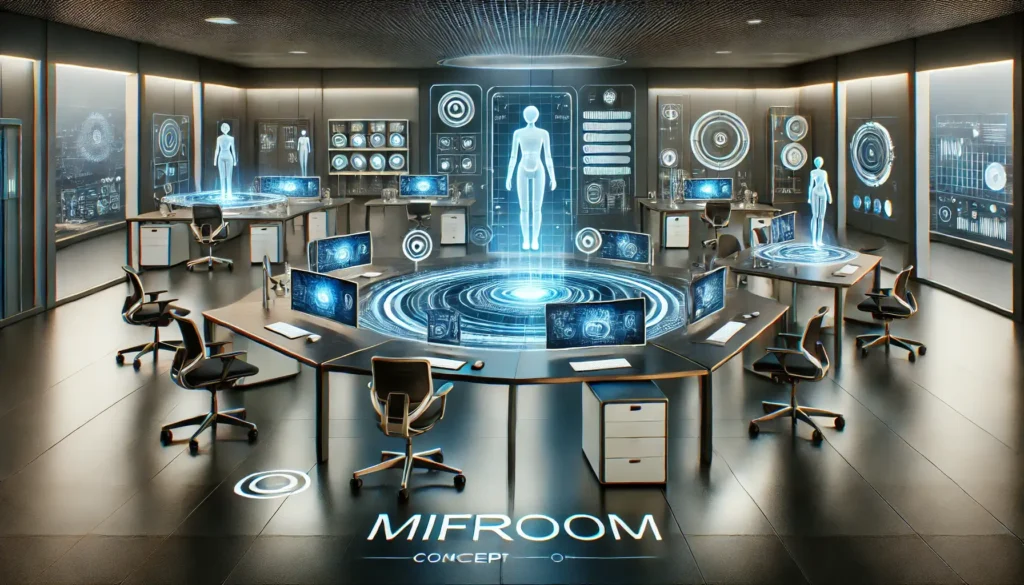Introduction
Mifroom is a term that has gained attention recently, but many people are still unaware of its meaning and significance. In this comprehensive guide, we will explore everything related to Mifroom, its applications, benefits, and importance in various fields. This article is designed to be easy to understand, even for those unfamiliar with the term.
What Is Mifroom?

Mifroom is a concept that is becoming popular in multiple industries. While the exact definition varies based on its use, it generally refers to a space, system, or platform designed to enhance functionality and efficiency. It can be associated with different fields such as technology, architecture, business, and personal development.
The Origin of Mifroom
The term Mifroom may have originated from a combination of words that represent a specific function or purpose. While its etymology is not widely documented, the concept has been adopted by various sectors, indicating its versatility.
How Mifroom Works
Mifroom works as a framework that helps organize, manage, or optimize a particular area. Whether in technology, business, or everyday life, the principles of Mifroom can be applied to improve efficiency and effectiveness.
Key Features of Mifroom:
- Flexibility – Adaptable to various applications
- Efficiency – Helps in better resource management
- Scalability – Can grow and expand based on requirements
- User-Friendliness – Designed to be simple and accessible
Benefits of Mifroom
Mifroom offers multiple advantages, making it a valuable tool or concept in different fields. Some of the key benefits include:
1. Improved Organization
Mifroom helps structure and organize information, making it easier to manage and access.
2. Enhanced Productivity
By streamlining processes, Mifroom can boost efficiency and reduce wasted time and effort.
3. Better Collaboration
In a workplace or business setting, Mifroom fosters teamwork by providing a structured environment for communication and coordination.
4. Cost-Effectiveness
Many implementations of Mifroom are designed to be cost-efficient, allowing businesses and individuals to save money while improving operations.
5. Versatility
Mifroom can be applied in different sectors, including education, business, and technology.
Applications of Mifroom
Mifroom can be utilized in various industries and sectors, including:
1. Business and Office Spaces
Many companies use Mifroom principles to design office spaces that maximize efficiency and productivity.
2. Technology and Digital Platforms
Mifroom can refer to a structured digital environment that enhances online collaboration, project management, or software development.
3. Education and Learning Spaces
Educational institutions can implement Mifroom strategies to improve classroom organization and student engagement.
4. Home and Personal Organization
Individuals can use Mifroom techniques to declutter and optimize their living spaces for better functionality.
5. Healthcare and Wellness
Mifroom approaches can be integrated into healthcare facilities to improve patient care and medical workflows.
How to Implement Mifroom in Your Life

If you want to integrate Mifroom into your personal or professional life, follow these steps:
Step 1: Identify Your Needs
Understand what you need Mifroom for—whether it’s for business, personal organization, or another purpose.
Step 2: Create a Plan
Outline how you will implement Mifroom principles, including space planning, workflow optimization, or digital structuring.
Step 3: Use the Right Tools
Utilize technology, furniture, or organizational systems that align with the Mifroom concept.
Step 4: Test and Adjust
Monitor your implementation and make adjustments to improve efficiency and effectiveness.
Step 5: Maintain and Update
Continuously optimize and adapt your Mifroom strategies to stay effective over time.
Common Challenges in Implementing Mifroom
While Mifroom offers many benefits, some challenges may arise:
- Lack of Understanding – People may not fully grasp how to apply Mifroom effectively.
- Resource Constraints – Some implementations may require investments in tools or systems.
- Resistance to Change – Employees or individuals may be hesitant to adopt new structures.
- Maintenance Issues – Keeping the Mifroom environment updated requires ongoing effort.
Overcoming These Challenges
To overcome these challenges, consider the following solutions:
- Education and Training – Teach users about the benefits and methods of Mifroom.
- Budget Planning – Allocate resources efficiently to implement Mifroom without overspending.
- Gradual Adoption – Introduce Mifroom principles in phases to make the transition easier.
- Regular Assessments – Continuously evaluate and refine your Mifroom strategies.
Future of Mifroom
Mifroom is expected to evolve with technological advancements and changing needs. Some emerging trends include:
- AI Integration – Using artificial intelligence to enhance Mifroom applications.
- Virtual and Augmented Reality – Creating digital Mifroom environments for remote work and collaboration.
- Sustainable Designs – Incorporating eco-friendly solutions into Mifroom structures.
- Personalized Mifroom Solutions – Customizing Mifroom implementations based on individual or business requirements.
Conclusion
Mifroom is a versatile and innovative concept that can improve organization, productivity, and efficiency in various fields. Whether used in business, education, technology, or personal life, Mifroom principles offer valuable solutions to common challenges.
By understanding and applying Mifroom, individuals and organizations can optimize their spaces, workflows, and overall effectiveness.
Start integrating Mifroom today and experience the benefits of a well-structured environment!












